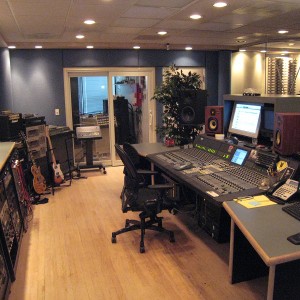 Not too many years ago, choosing a recording studio was a decision based largely on what you (or your record company) could afford. This often meant setting a budget, and then choosing a venue that appeared to best suit your needs as an artist that still fell within said budget.
Not too many years ago, choosing a recording studio was a decision based largely on what you (or your record company) could afford. This often meant setting a budget, and then choosing a venue that appeared to best suit your needs as an artist that still fell within said budget.
But as we all know, recording is a completely different ballgame today.
In fact, the question is often not “what” studio to choose, but “if” you should choose a studio at all. With the advancement of computer technology, nearly anyone can record albums from the comfort of their own home. Why then, you may ask, are recording studios still in business.
There are multiple reasons artists choose to still record albums at established studios, and the choice to do so is often the difference in a hit record and one that falls into obsurity. Here are a few reasons you may want to choose a professional recording studio to record your next work.
Recording Studios Offer Professional Expertise
Sure, home recordings can sound very good and extremely professional, but this is not usually the case (a quick surfing of the independently released music on SoundCloud will prove this). This is because regardless of the equipment you may have, it is very likely you don’t not have years of experience under your belt as an engineer and/or producer.
Professionals studios do have this experience, and they are there to make sure that you sound as good as you possibly can on every track. That’s their job, and they’ve likely been doing it for many years.
Studios Have Professional Equipment
For some reason, U2’s Bono sounds best in the studio on a relatively cheap Shure SM58 microphone, which is what he uses to record all of his vocal tracks. Though you can try this, too – it is relatively safe to assume that you’re no Bono (no offense).
Many mics used in studios start well over $1,000 (a piece!), and that’s just the beginning. That’s not including professional mixing boards, effects, headphones and every other thing studios use to make you sound your best that you won’t find in nearly any home studio.
It may not seem like these things would make a difference – but in reality the improvement in quality is almost always huge.
Studios Have Room
I don’t mean studios have enough room to fit your entire band (or entourage or whatever you travel with), I mean they have the room to make you sound your best.
Studios are specifically engineered to provide the best sound for each instrument. For example, that’s why you’ll often see drums recorded in the middle of a huge hall to obtain a huge, booming drum sound. However, guitar amps are usually tucked away in a small room or closet you can’t see to capture the best sound they can provide.
The ambiance of a room will provide an immeasurable contribution to the sound of a recording, and it’s something that you can’t replicate in someone’s basement.
Recording Studios Deliver a Great Final Product
Even after all tracking is done, studios continue to provide better sound than you can achieve in a home studio. Mixing may seem like something anyone can do – it’s just setting volume levels of each track, right? Wrong, very wrong.
Mixing involves a lengthy process of applying just the right combination of effects to each track, and then making sure each track “sits” well with every other track. This is not just a volume setting task, but also making sure the EQ of each track is optimized to make it fit where it should in the mix.
Once again, this is a job for professionals that have years of experience. And that doesn’t even touch on the mastering process, which is also essential to making sure the product is ready for distribution (though this is often done at a different studio than where the recording was performed).
As the abundance of home studio recording continues to rise, there will still be a place for traditional recording studios for a very long time to come.

